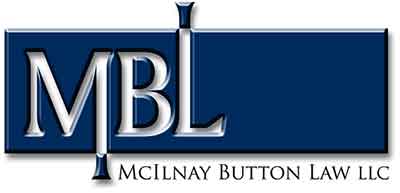You’ve been running your business for many years and have decided to call it quits. There are many reasons you may be looking to do so. Perhaps you have an offer to purchase the business you just can’t pass up. Maybe the pandemic has crushed your business or given you a different perspective on life. It could be that you and the other owners of the business no longer agree on the direction in which to take it. The list goes on.
But whatever the reason, an owner exiting a business must address numerous things to comply with legal and tax requirements and to ensure a smooth process. While it might be tempting to simply lock the doors and walk away, that approach will likely leave you facing a legal nightmare and expenses and liabilities you never saw coming. This is especially true if you leave the keys on your banker’s desk and walk out.
Through sound planning and by following a few critical steps, you can maximize the return on your investment; minimize stress on yourself and all those who will be affected; avoid unnecessary conflict and expenses; and not have to look over your shoulder as you move on to the next chapter in your life.
1. Make a Detailed Plan, Get Buy-in, and Stick to it
Just as you hopefully had a business plan when you started, having a solid plan to exit in an orderly and efficient manner is key. Exiting your business is a process to be carefully thought through and planned. Avoid the temptation to “wing it.” Take at least the following into account when forging the plan:
- What is your goal? Are you selling the entire business, selling your stake in the business, or going out of business? The steps you take and the factors you account for will vary greatly depending on what you are doing. For example, if you are selling your business or your stake in it, you will want a fair market valuation completed by a competent third party. But, if you are closing your doors, you will likely be looking at liquidating your assets for the best price you can get. Or, you may be at a point where you intend to liquidate your business through bankruptcy.
- Be sure to have buy-in from those affected by the exit. Are there other owners? If so, making sure that everyone is on the same page is crucial to avoiding conflicts, delays, unnecessary costs, etc. A carefully thought-out plan that is made and agreed upon by all stakeholders including the bank and trade creditors is far more likely to succeed than one that is not.
- Enlist professional assistance early. Be sure you get on your team an attorney and an accountant experienced in what you are trying to do. A financial planner can also be very helpful. Advice and counsel from professionals will cost money, but it will most likely help save more than it will cost. For example, an attorney should be able to help you avoid costly mistakes or missteps that may cause unforeseen liabilities. An accountant can help you assess the value of what you are selling, identify, marshal and address your assets, liabilities, income and expenses, and minimize taxes.
- Make sure your plan reflects the type of business entity you have. How you develop and carry out your plan and your legal, tax and other obligations will be very different if you are a sole proprietor, a general partner, or a limited liability stakeholder such as a shareholder in a corporation, a member of a limited liability company (LLC), or a partner in a limited liability partnership (LLP).
- Gather all of your corporate documents, such as articles of organization and member and operating agreements (LLC), articles of incorporation, by-laws and shareholder agreements (Corporation), partnership agreements, etc. Take into account any succession plan that may exist. These documents and applicable law will be key to, and in many ways govern, how you proceed.
- Put the plan in writing, with key tasks, deadlines and responsible parties. Understand your plan likely will change as you move forward so keep it flexible and update it as necessary.
2. Manage Communications Carefully
You will need to coordinate and communicate with numerous constituents along the way, which may include employees, customers, suppliers, a landlord, the bank, creditors, regulatory agencies, taxing authorities and others. There is a right time and manner in which to have these discussions. Consider appointing someone to create, manage and conduct your communication strategy and timing.
3. Identify All Legal, Tax, Operational and Other Considerations
If you are a sole proprietor with a relatively small operation, your legal and other obligations will be significantly less than if you are a larger organized entity with more significant operations, liabilities, employees and so forth. Your obligations will also vary significantly depending on whether you are selling the business, closing the doors, or filing for bankruptcy.
It is essential that you have a checklist identifying the things you must do, and by when. If not, you are bound to miss something that may bite you later. That might happen anyway, but the chance of missing something big is greatly reduced or eliminated by having a thorough list and understanding of the things you should and the things you must do, and the order in which to do them.
You can find a simple, but helpful, list from the Small Business Administration here: https://www.sba.gov/business-guide/manage-your-business/close-or-sell-your-business. Always consult your professional advisors for assistance in identifying and addressing applicable requirements.
4. Don’t Leave Loose Ends Behind
In addition to ensuring that your plan covers the big and the small of what needs to be done, be sure to follow through on the various details that may need to be addressed following a sale or business closure. For example, you should be sure all creditors have been taken care of; that bank, credit, and other business accounts are closed; applicable legal and regulatory filings have been made (i.e. filing of articles of dissolution for a Wisconsin LLC); and final tax returns are filed.
At McIlnay Button Law, a full-service business law firm, we can help you plan for and navigate through the process of exiting your business in a manner that maximizes your return, minimizes your stress and protects you from liability.

